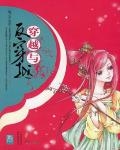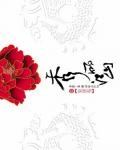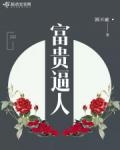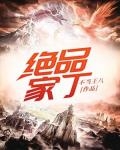Volume 2: The King's Way Chapter 121 The Messenger
The fifteenth day of the first lunar month, the second year of Jian’an.
The provincial governor's office had been moved to Jinling for a while, and Jinling had become increasingly prosperous. With this New Year, it became even more lively.
All the big and powerful families have now bought houses in Jinling. Even those who have not yet taken office in the governor's mansion have at least a separate courtyard. Some have even bought farms outside the city...
Although the whole family will not actually move, a group of clansmen will be resettled, firstly to show closeness, and secondly to keep informed.
The Ministry of Civil Affairs, which bought the bottom first, naturally made a lot of money, but it was not a huge profit.
The price of land within the city in the Han Dynasty could not be too high, especially in the Eastern Han Dynasty. Even in Luoyang during its heyday, a grassroots official could buy a small house by saving for a few years.
The land prices in the city needed a prosperous civilian business to take off, and the wealthy merchants in the Han Dynasty were indeed wealthy, but they relied on monopoly and large-scale transactions.
Especially after Wang Mang usurped the Han Dynasty, the commodity economy of the Eastern Han Dynasty actually regressed compared to the Western Han Dynasty.
In order to ease the economic pressure caused by foreign wars during the reign of Emperor Wu of Han, the embryonic form of transportation tax and property tax, namely "Junshu" and "Suanmin", began to emerge.
However, on the one hand, the step was too big. Emperor Wu of Han was almost going crazy with poverty at that time, and the blood was drained too much, which directly damaged the roots. On the other hand, the late Western Han Dynasty, especially Wang Mang, made a big push for retro style, which almost made the commodity economy unable to recover.
Although the "fangshi" system already existed in the Han Dynasty, housing prices were average.
In the Tang Dynasty, the price of land in the city really took off. Han Yu, who was the Minister of Personnel, wrote in his poem, "I worked hard for 30 years to have this house." Du Fu, who was bullied by children in the southern village, could only build a thatched house in the suburbs of non-first-tier cities...
From this we can also see that the commerce in the Eastern Han Dynasty was not perfect . Although there were wealthy families doing large-scale business, there was a lack of civilian merchants, and the demand for commerce among the people was also very low. Small peasant economy and barter for daily necessities were the mainstream.
However, these so-called large-scale transactions could hardly provide tax revenue for Bai Tu, just like Chen helped Bai Tu transport a thousand cavalrymen to Jiangdong - even Yuan Shu, who controlled Huainan, did not discover their whereabouts, so where could he collect taxes?
Unless one day, Bai Tu can open up stable trade routes, ports, and trading points, making it a reliable distribution center and bulk trading location, which is more convenient than their own transactions, there will be a basis for collecting taxes.
Otherwise, Baitu couldn't build a Great Wall to surround Jiangdong...
As for the private commodity economy which is easy to collect taxes, the Eastern Han Dynasty is even more backward than the Western Han Dynasty. Ninety-nine percent of the Han people are completely small peasants and self-sufficient.
This has both advantages and disadvantages. The advantage is that Bai Tu can now ask the Ministry of Revenue to revise the commercial tax regulations and correct the problem before the business develops. The disadvantage is that for a long time, Bai Tu can't expect much subsidy from commercial taxes.
Wanting to support themselves through commercial taxes is still just a vision. In recent years, they still have to endure the torture of conscience and "exploit" farmers to maintain the army.
Only when grain production increases, freeing more manpower from farmland and revives the commodity economy, can "commercial taxes" gradually come into use.
Even more than just food, after food production capacity is increased, the dietary structure can also be upgraded...
During the heyday of the Han Dynasty, especially during the Western Han Dynasty, those powerful periods, meat was not considered a luxury among the common people. Border troops could be rationed with several kilograms of meat per person per month. The general rations for the garrison were the staple food and salt that relied on transportation, and the supplementary food that was purchased locally directly from the allocated funds.
Only an army on a campaign would rely entirely on the transportation of food and fodder.
But obviously this does not include the end of the Eastern Han Dynasty. Now it’s good enough for ordinary people to have enough food to eat!
Moreover, even for ordinary people in the Han Dynasty, the main meat they ate was chicken and beef. Even though most of the time they could not eat meat, they rarely considered pork.
It's not just a problem of the fishy smell. After all, if you are extremely hungry, tree bark and grass roots are edible.
The main reason is that there are not many people raising pigs, and pigs that have not been castrated are not like the big, fat white pigs in the pig farms. Especially now, the degree of pig domestication is far less than that in later generations. Uncastrated pigs require more exercise than cows!
They are more wild than cattle, which not only makes breeding more difficult, but also requires a lot of exercise, so they naturally gain weight slowly, making it difficult to get a significant profit...
However, Bai Tu understood that as long as the breeding was optimized and the pigs were castrated scientifically, the feed-to-meat ratio of pigs would be much higher than that of cattle. Even if Bai Tu could not get corn for the time being, there was still great potential for pig farming.
What Bai Tu is going to do today is to first break down people’s prejudice against pigs!
Because there were too many people at the banquet and the central hall was not big enough, Bai Tu set up the banquet directly in the large courtyard of the governor's mansion.
Except for Sun Ce's troops still in Poyang and Taishi Ci who was still on the way to Liaodong, the main figures of other governors' offices had basically all arrived. Even those noble families and wealthy families who had not yet served in the governor's office but already had representatives in Jinling were all sent invitations, but they were just the last ones to attend.
At the front, next to the white map, are Lü Bu's family, Zhang Liao, Gan Ning and other generals stationed outside, as well as the main staff of the six ministries...
Seeing Gan Ning sitting there peacefully, many people believed that what happened a few days ago was indeed a rumor.
Even though Sun Ce was not there, Sun Quan's brothers, and even Mrs. Wu and her husband, as well as their family members were all invited, and Diao Chan was also present next to Lu Bu.
In addition to these people, there was also an unexpected guest - Xun You.
Bai Tu's Hall of Talent Recruitment has already recruited many well-known talents, but Xun You is not among them.
After all, before he traveled through time, Xun Yu and Xun You, uncle and nephew, had already been recruited by Cao Cao. Now Xun You also came to Jiangdong as an envoy of the court to invite Bai Tu to join the army to attack Yuan Shu!
Yuan Shu declared himself emperor on the first day of the first lunar month, but Xun You had already arrived in Jinling on the fourteenth day of the first lunar month. This shows that Cao Cao was really anxious.
Besides...it's better to arrive at the right time than to arrive early. Bai Tu can't even be reluctant to give up this bite of meat.
Xun You also didn't expect that as Cao Cao's messenger, and even an "angel" in name, he would be dragged to eat pork. If other major generals and staff of Jiangdong had not been there, he would have really thought that Bai Tu was humiliating him!
Actually, I knew that we would have pork today, but the other specifications of the banquet were pretty good. Bai Tu sat at the top, and everyone sat on both sides, each with a table. There was also a large cauldron in the middle of the courtyard, which was bubbling with food...
Waves of rich aroma emanated from the cauldron.
Gan Ning had nothing to do, so not only did he sit in an untidy manner, he also shouted to Xun You from several seats away: "Don't worry, Mr. Xun, this cauldron is for cooking cheap meat, not for cooking envoys, hahahaha..."
Xun You: ...
Hua Xin glared at Gan Ning's rude joke, but Gan Ning pretended not to see it.
Although Xun You was not very familiar with Gan Ning, he knew that he must be Bai Tu's confidant, so he had to pretend that he didn't hear anything and chatted with Hua Xin, Wang Lang, Kong Rong and others nearby.
In addition to asking Bai Tu to send troops, Xun You also had other tasks this time, which was to see if he could recruit Hua Xin and others in the name of the court, and at the same time to test whether Bai Tu had the ambition to dominate.






